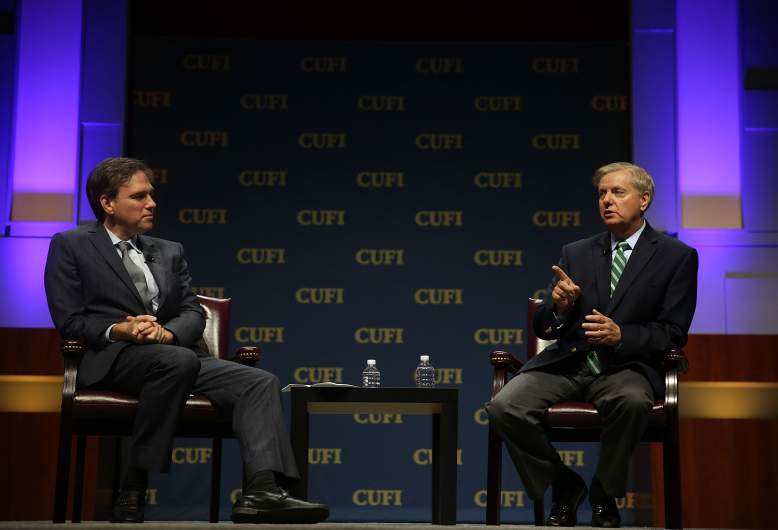
Bret Stephens, a New York Times columnist, and Dave Karpf, a professor, are in a Twitter dispute over… bedbugs. The professor says the columnist took such umbrage over being labeled the insect that he contacted his university’s provost.
Stuart A. Thompson got the ball rolling on Twitter what he wrote on August 26, 2019, “Breaking — There are bedbugs in the NYT newsroom.” Thompson is a visual journalism director for the New York Times. (Supposedly, bedbugs were found in several places in the Times’ building.)
Dave Karpf then responded on Twitter, “The bedbugs are a metaphor. The bedbugs are Bret Stephens.” Karpf’s Twitter page describes him as “Associate Prof, George Washington University. Author of two books: The MoveOn Effect and Analytic Activism.” He also has a website that you can see here.
That’s when it got even odder. As Karpf explained, “This afternoon, I tweeted a brief joke about a well-known NYT op-Ed columnist. It got 9 likes and 0 retweets. I did not @ him. He does not follow me. He just emailed me, cc’ing my university provost. He is deeply offended that I called him a metaphorical bedbug.”
Here’s what you need to know:
Stephens Wrote Karpf an Email Suggesting He call Him a ‘Bedbug’ to His Face Instead, According to Karpf
Karpf shared an email he said was sent to him by Bret Stephens, who also copied his university’s provost on it. “Dear Dr. Karpf,” it says. “Someone just pointed out a tweet you wrote about me, calling me a ‘bedbug.’ I’m often amazed about the things supposedly decent people are prepared to say about other people – people they’ve never met – on Twitter. I think you’ve set a new standard.”
The email continued: “I would welcome the opportunity for you to come to my home, meet my wife and kids, talk to us for a few minutes, and then call me a ‘bedbug’ to my face. That would take some genuine courage and intellectual integrity on your part. I promise to be courteous no matter what you have to say. Maybe it will make you feel better about yourself. Please consider this a standing invitation. You are more than welcome to bring your significant other.”
The Internet responded by having a blast with the whole situation. “One morning, as Bret Stephens was waking up from anxious dreams about incivility, he discovered that he had been changed into a monstrous verminous bug,” one person wrote in a tweet. “Don’t go to his house! You might get bedbugs,” joked another person. “It’s a moral imperative that you do this and wear a tux,” another implored. Others criticized Stephens, saying he’s supposed to be a defender of academic freedom.
“Hey, at least he called me Dr. Karpf…” pointed out Karpf. The professor explained to Splinter why he called Stephens a bedbug in the first place, saying, “Bedbugs are a pain in the ass and hard to get rid of and everybody complains a lot about them, which is kind of like how my Twitter timeline always reacts to every Bret Stephens column.”
Copying the provost, Karpf told Splinter, was “an offensive power move.”
On August 27, Stephens announced he was leaving Twitter, writing, “Time to do what I long ago promised to do. Twitter is a sewer. It brings out the worst in humanity. I sincerely apologize for any part I’ve played in making it worse and to anyone I’ve ever hurt. Thanks to all of my followers, but I’m deactivating this account.”
Dave Karpf Is an Author, Blogger & Associate Professor Who Researches the ‘Internet’s Impact on Political Associations’ & Bret Stephens Is a Pulitzer Prize Winner

Then Republican U.S. presidential hopeful, Sen. Lindsey Graham (R-SC) (R) participates in a discussion with moderator Bret Stephens, then of the Wall Street Journal, during a Christians United for Israel summit July 13, 2015 in Washington, DC.
According to his website, Dave Karpf is an Associate Professor in the School of Media and Public Affairs at George Washington University, “where I have taught since joining the department as an Assistant Professor in 2012. I previously spent two years as an Assistant Professor at Rutgers University’s School of Communication and Information.”
He explains: “My research explores the internet’s impact on political associations — both in the formation of novel organizational structures seen in MoveOn and DailyKos, and also tracing implications for more traditional advocacy organizations. My first book, The MoveOn Effect: The Unexpected Transformation of American Political Advocacy was published in May 2012 by Oxford University Press. My second book, Analytic Activism: Digital Listening and the New Political Strategy was published in December 2016 by Oxford University Press.”
Karpf also writes blog posts for a variety of sites. “Previous academic positions have included a visiting fellowship with the Yale Information Society Project, a postdoctoral position at Brown University’s Taubman Center for Public Policy and a predoctoral fellowship at the University of Virginia’s Miller Center for Public Affairs,” he wrote. “I earned my Ph.D. in political science from the University of Pennsylvania in 2009 and my B.A. in Politics from Oberlin College in 2002.”
According to his own bio on the Times website, Bret Stephens “joined The New York Times as an Op-Ed columnist in April 2017. His column appears Thursday and Saturday.”
“Mr. Stephens came to The Times after a long career with The Wall Street Journal, where he was most recently deputy editorial page editor and, for 11 years, a foreign affairs columnist. Before that, he was editor in chief of The Jerusalem Post. At The Post he oversaw the paper’s news, editorial and digital operations and its international editions, and also wrote a weekly column. He has reported from around the world and interviewed scores of world leaders.” He is an author and Pulitzer Prize winner.